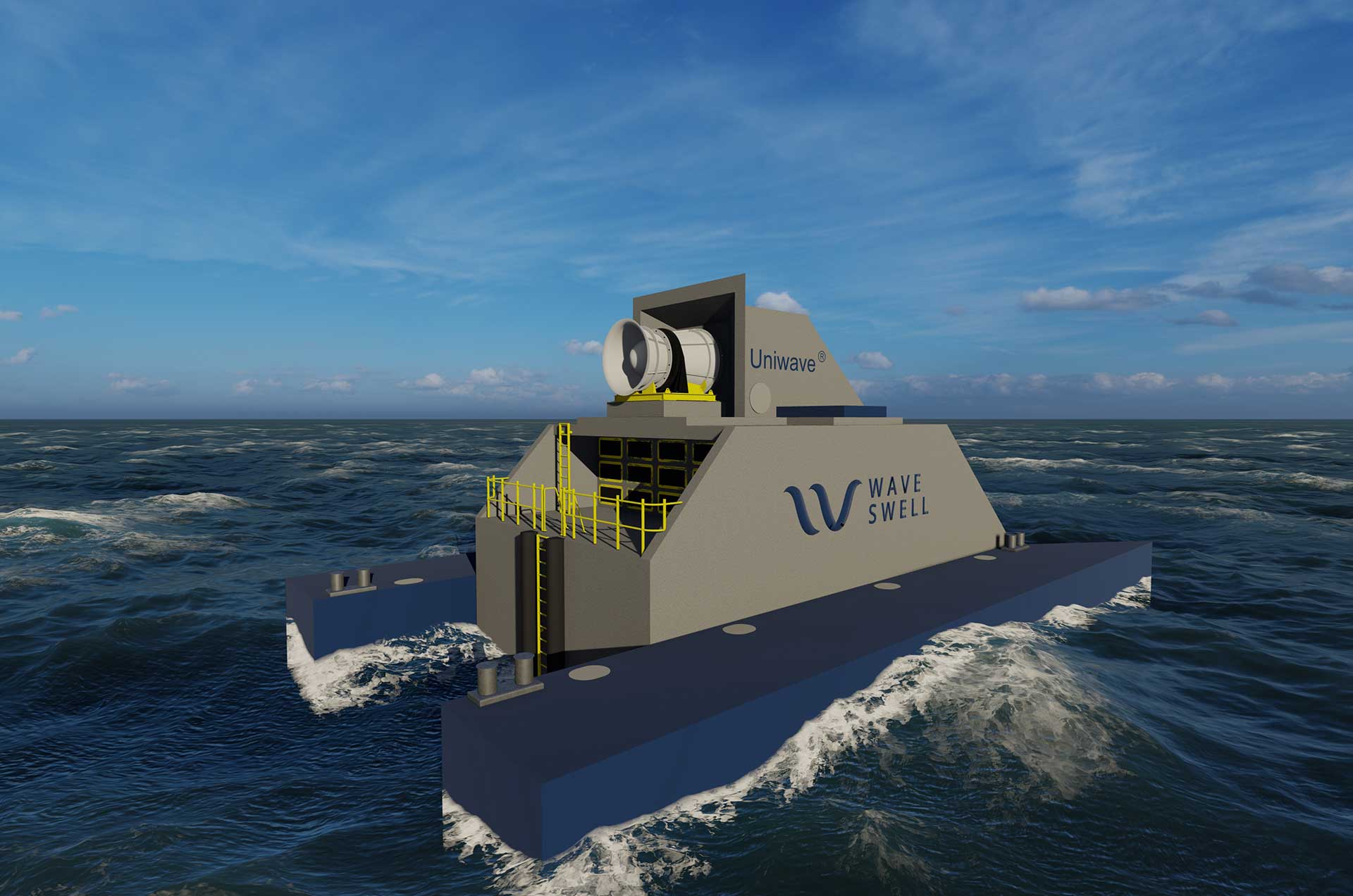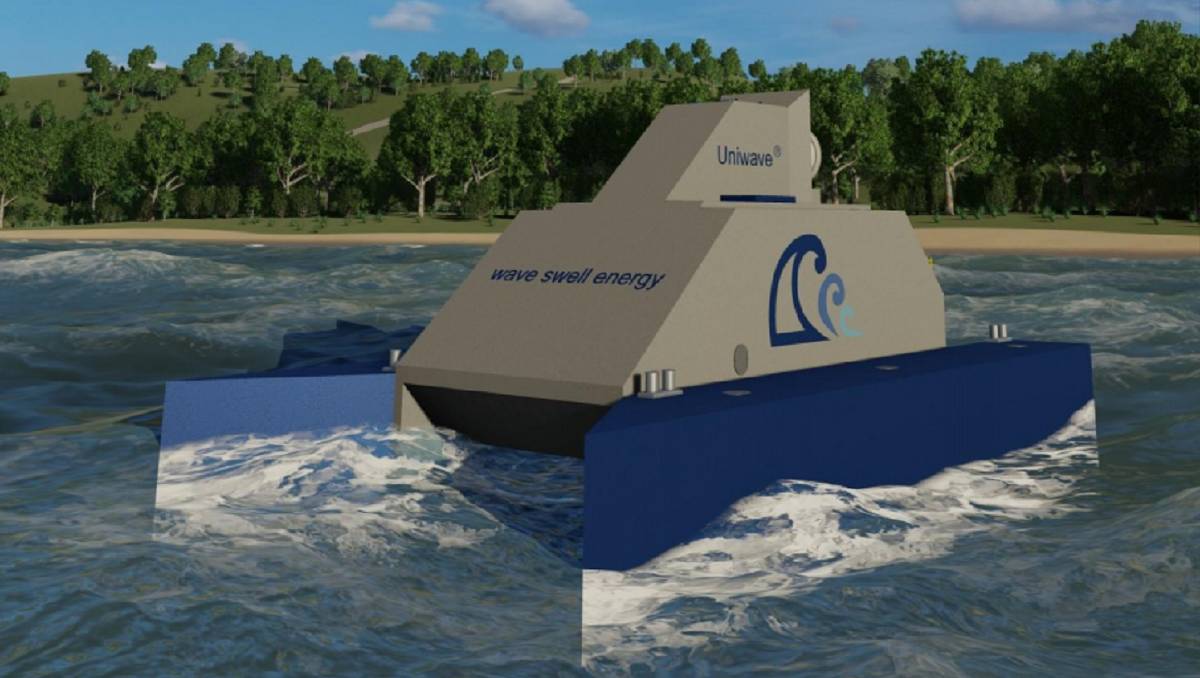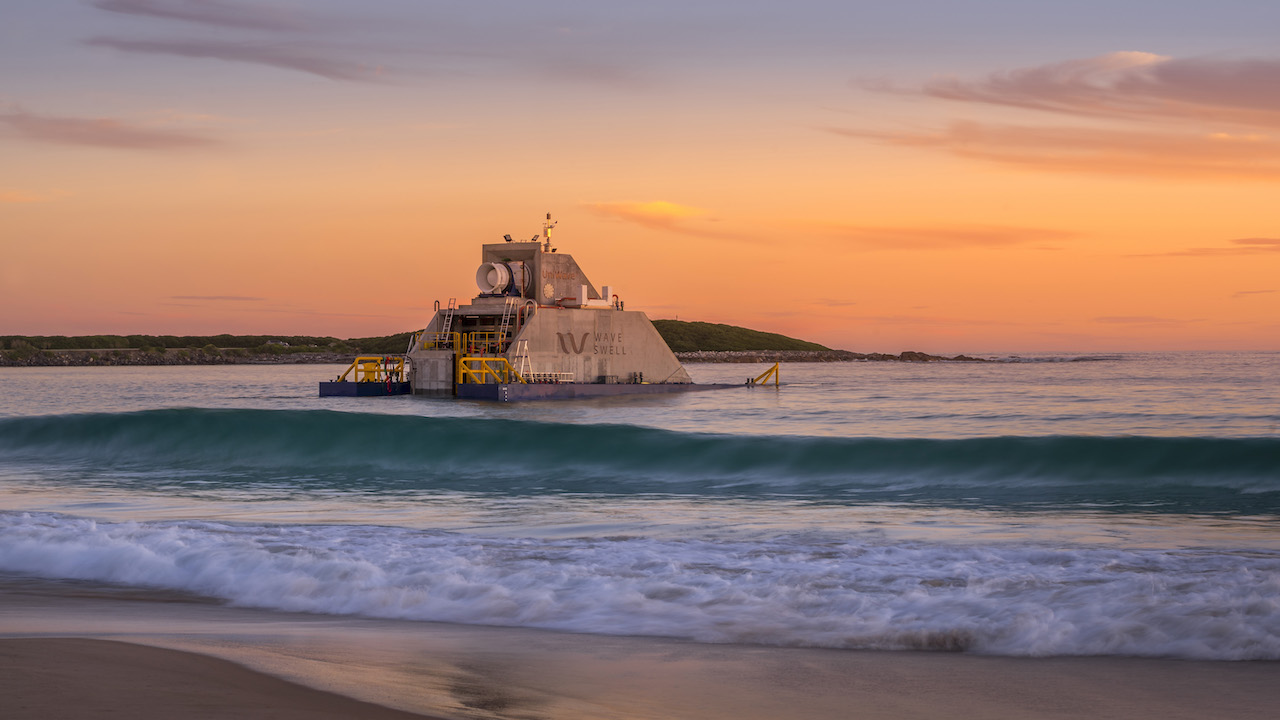Summary
The UniWave200 King Island Project included the design, construction, deployment, installation and operation of the UniWave200, a 200KW wave energy converter near Grassy Harbour on King Island, Tasmania.
Need
In addition to its potential to produce low cost renewable electricity, wave energy could be integrated into microgrids to reduce the need for significant battery storage due the relative predictability and consistency of wave energy (compared with wind and solar).
Project conclusion
Wave Swell Energy (WSE), along with its partners, developed, designed, built, installed, operated, and then decommissioned its 200kW wave energy converter, dubbed UniWave200, over a 5-year period. This enabled WSE to learn, gain experience, and refine the full project lifecycle. The UniWave200 was in situ at King Island for over two years and experienced extreme sea states, the challenges of remoteness, and cold and wet winter months. Given the harsh environmental conditions that are experienced by wave energy converters, exhibiting survival in the inclement conditions of the southern oceans were critical to building confidence in the future success and commercialisation of the technology.
King Island provided the perfect location to thoroughly test the UniWave200 structure.
On several occasions the maximum sea states for the water depth at the site were observed. The UniWave200 was operational for 18 months, the data captured from this period not only enabled WSE to optimise the system but gather enough data to validate its model testing techniques and predict the energy output across the full range of conditions (significant wave height and peak wave period).
The project led to coordination and collaboration, in Australia and globally, between the research community, government, and the ocean energy industry through knowledge sharing activities. WSE collaborated extensively throughout the project with both the University of Tasmania’s Australian Maritime College (AMC) and the US Department of Energy (DOE), both of which were provided full access to project data. These collaborations resulted in the performance of the technology being independently assessed and validated.
Learn more
Action
The UniWave200 device operates partially submerged sitting on the seabed, with an opening on one side allowing the movement of the waves in and out of the chamber. Integrated structural steel pontoons attached to the sides of the Wave Energy Converter (WEC) allow air and water to be pumped in and out for the purpose of transportation and installation.
The design of the UniWave200 was modified from a bidirectional turbine which rotates in two directions, to a unidirectional turbine which rotates in one direction only, with the simpler and more robust design aimed at improved energy conversion efficiency and lower costs.
There are no moving parts below the water which means maintenance is only ever required to be performed on the easy-to-access areas of the device.
Outcome
The UniWave200 King Island Project demonstrated the technical and commercial viability of the UniWave200. The unit was connected to the grid in June 2021 through a Power Purchase Agreement (PPA) with Hydro Tasmania, with the aim of operating for a period of at least twelve months.





